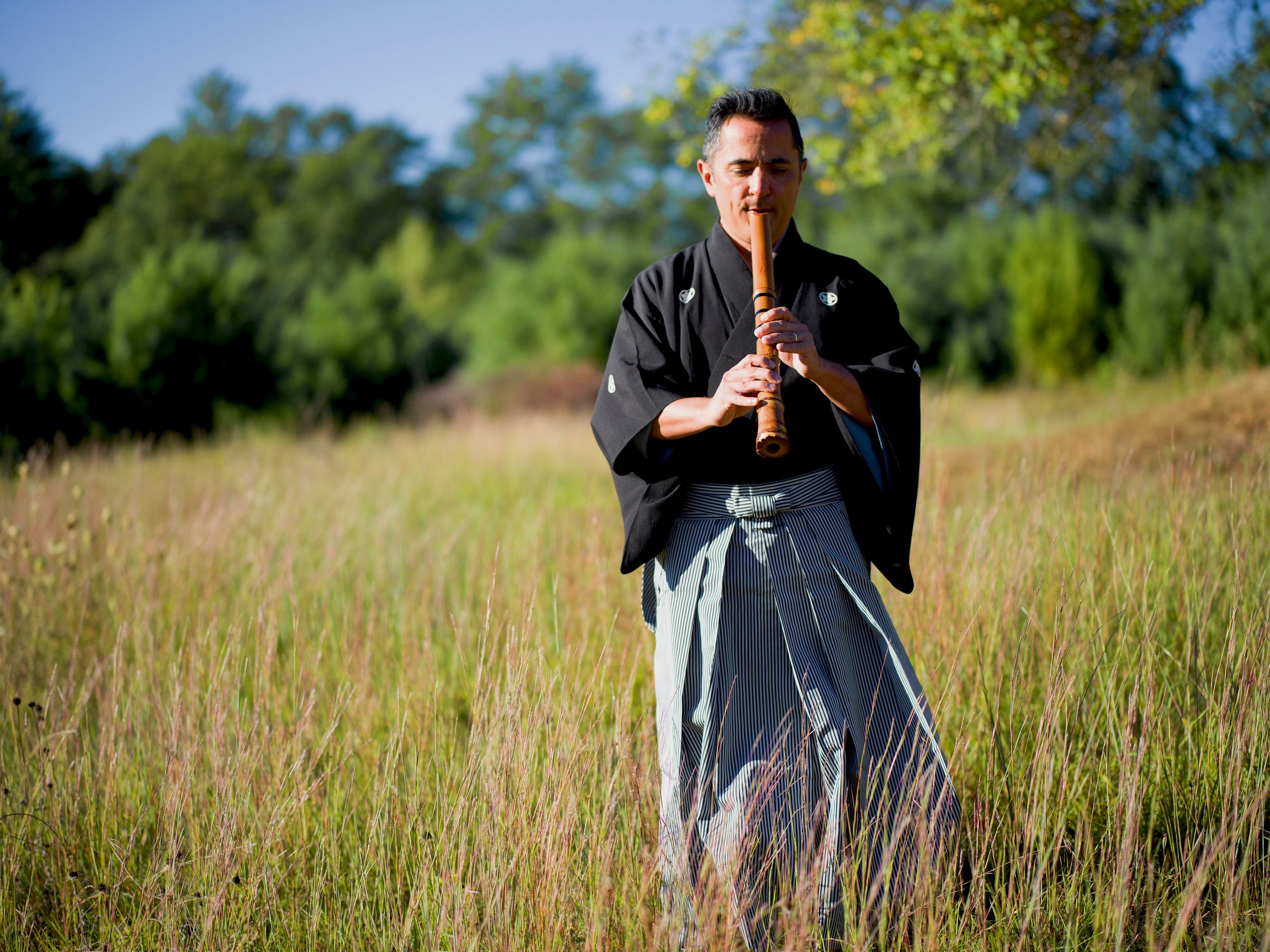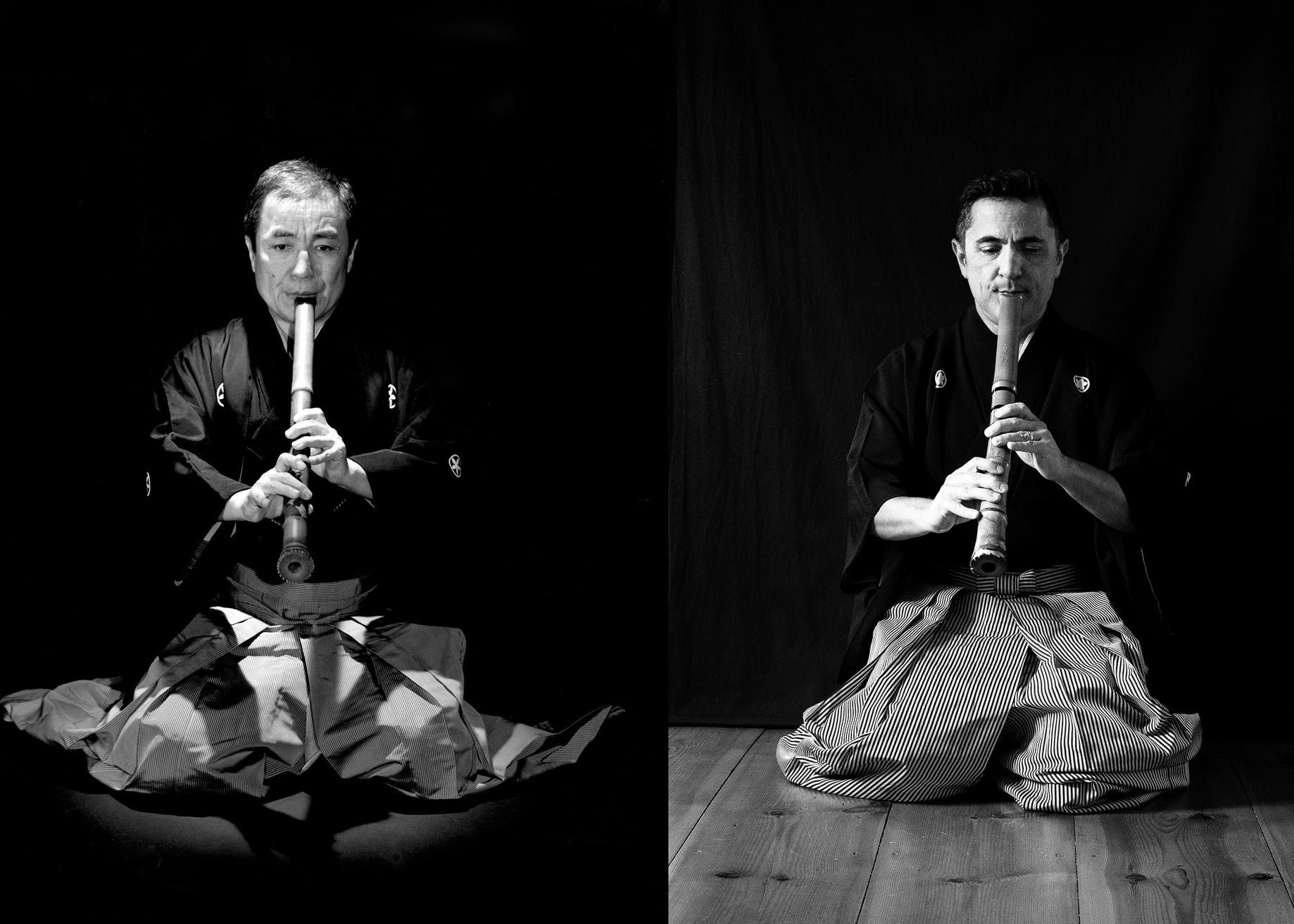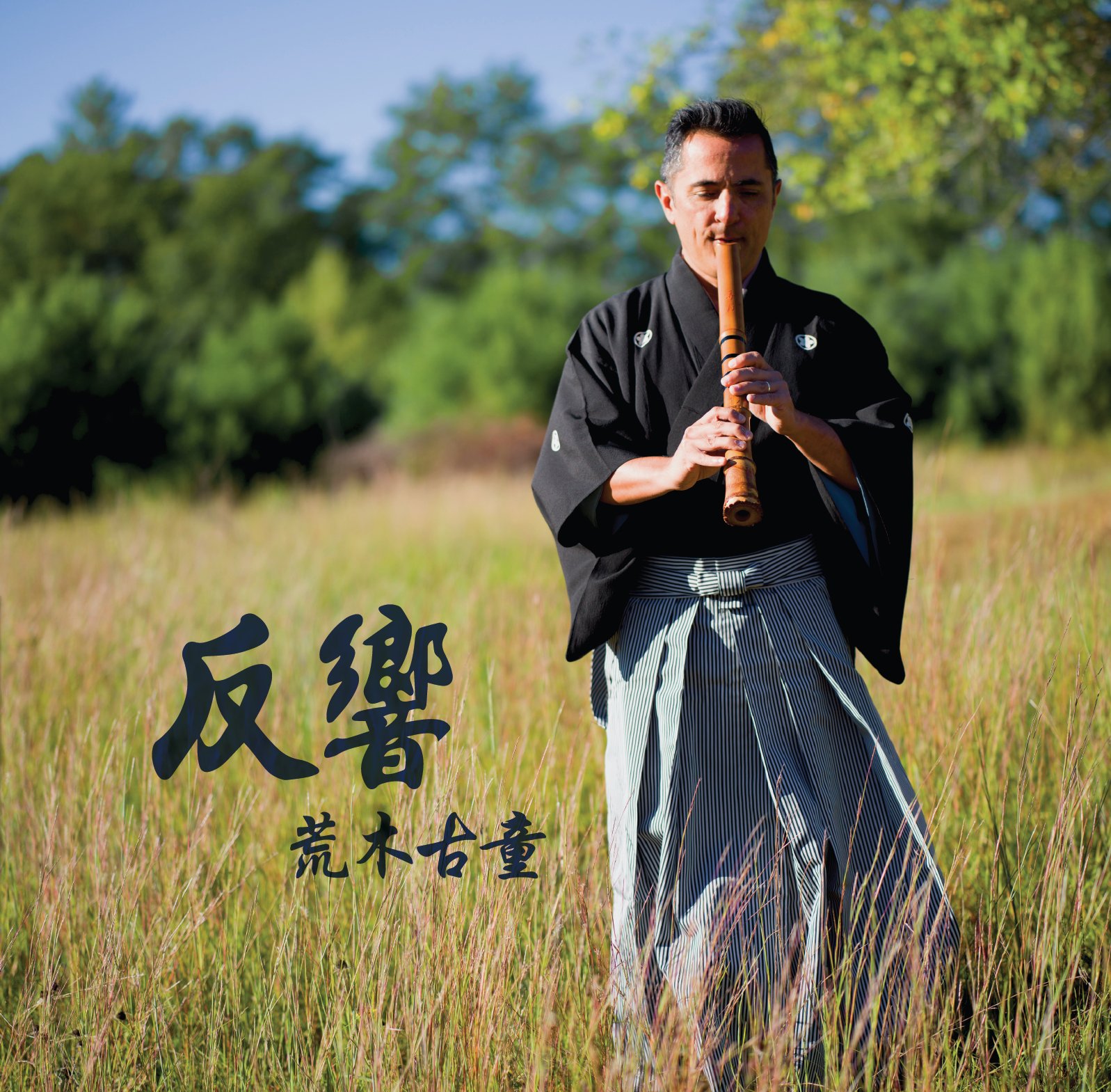
Araki Kodo
Six Generations of Kinko-Ryu Shakuhachi
Araki Kodo VI, born Hanzaburo Araki, is the head of the Kodo-kai Shakuhachi Guild and the sixth generation of the only Kinko-Ryu shakuhachi lineage to date back to Kurosawa Kinko.
The youngest child of Tatsuya (Kodo V/Chikuo II) and Charlotte Araki, Hanzaburo (Hanz) made his professional debut in 1988 in Shimonoseki, Japan where he was given the name Baikyoku. He attained the name Kodo at his father’s retirement ceremony in Tokyo in 2009.
Hankyo
2021 marked the 250th anniversary of the death of Kurosawa Kinko, the founder of Kinko-ryu from which the Araki-style of shakuhachi playing descended. In honor of this anniversary Araki Kodo VI released a collection of music significant to him and the Araki family.
From left to right: Araki Kodo II (Hanzaburo), Araki Kodo III (Shinnosuke), Araki Kodo IV (Atsumu), Araki Kodo V (Tatsuya), Araki Kodo VI (Hanzaburo)

Perhaps no other instrument in the traditional music of Japan is as easily recognizable as the shakuhachi; a deceptively complex end-blown bamboo flute. Originally played by itinerant monks as a form of meditation, it has endured centuries of change throughout Japan’s history. For six generations, the Araki family has carried this tradition under the name of Kodo. Named for his great-great grandfather, Hanzaburo made his professional debut in 1988 in Japan only four months after his first lesson from his father. In 2009, the name Kodo was bestowed upon him by his father to become the sixth in his family’s lineage to bear this title. This legacy continues to be the most influential in the genre, offering an unbroken connection to the roots of this haunting music. Araki Kodo VI remains firmly committed to honoring this tradition, both by looking to the future while never losing sight of the past.


